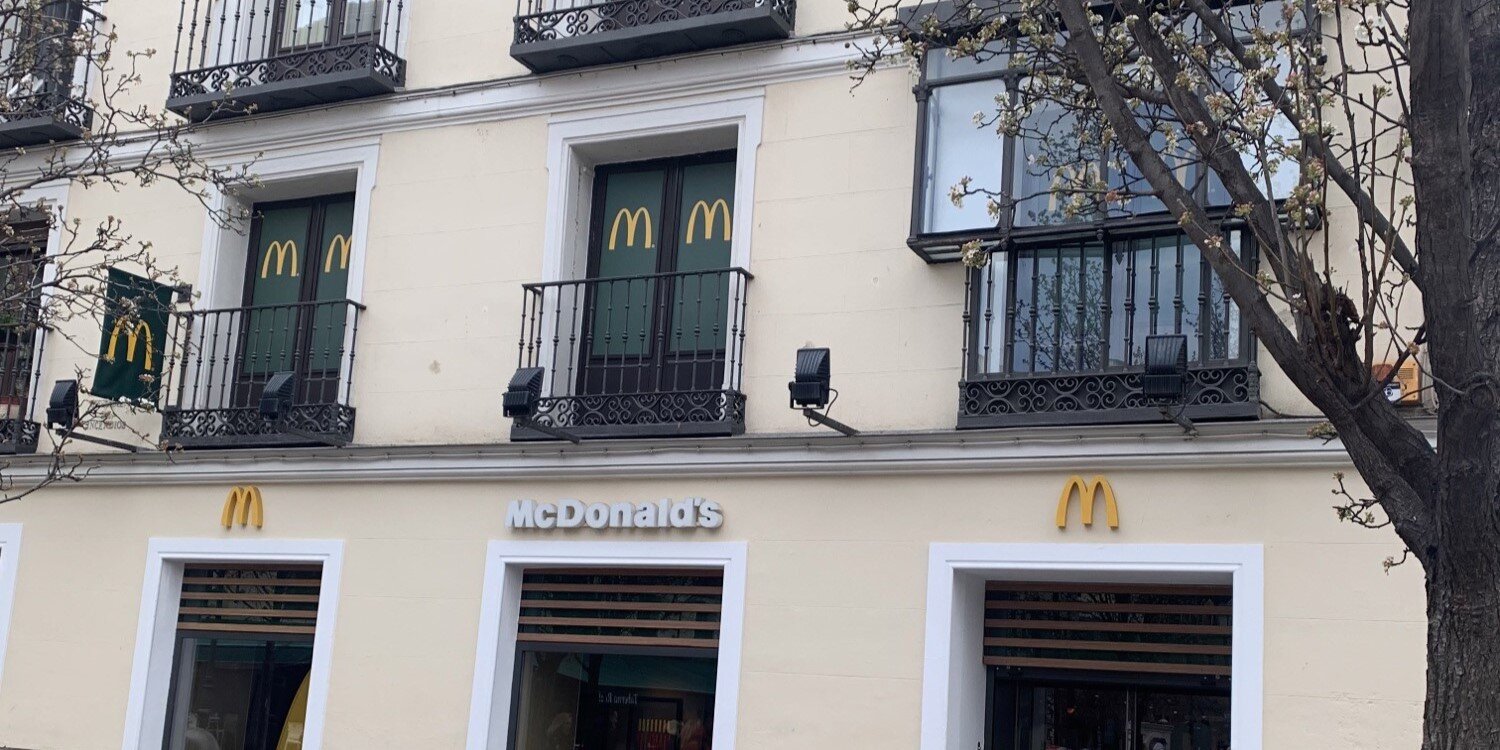The Sports Media Playbook is a podcast about the sports media industry. In this episode, we get the...
Spain has globalization on the menu

Globalization is the closer integration of countries and cultures through an exchanging flow of economics, politics, and in this instance, goods such as food.
During an excursion I took to Madrid, Spain earlier this year with Neumann University’s course Race, Diversity and Media, the effects of globalization on the food that is consumed overseas made a string impression on me.
Globalization has a very rich history in Spain. Increased trade during the Columbian exchange brought new world foods among other goods to the country permanently. What is particularly noticeable about globalizations effect on food in Spain today is the dominant presence of Western culture, mainly fast-food companies from the United States of America.
When walking the streets of Madrid, many U.S. fast food logos and stores can be seen all over different blocks of the city, with the most prevalent being Taco Bell, Burger King, KFC, and McDonald’s.
Fast food companies that originated in the United States of America have made sure to heavily increase their market to Spain as well as other foreign countries. With McDonalds as an example, the same menu items and dining experience Americans have come to find comfort in are available to them just as easily in Madrid. This is partially due to a need to make tourists comfortable in the city and provide a guaranteed economic success for the city, but it is also an effect of western globalization that gives Spain the opportunity to become familiar with companies not originated from their own.
It’s important to note that these fast-food restaurants do not offer the exact same products as in the United States, as Spain has its own character. This can be seen in the architecture; with the certain McDonald’s in Madrid, I visited overall being a much larger hotel-esque building with balconies and more space to offer.
Compared to an average American McDonald’s or Taco Bell, the insides of restaurants I went to were much cleaner and had more interesting interior design. There were also intriguing exclusive menu items like “Chicken Nachos” for Taco Bell, and a “McExtreme” for McDonalds.
From the meals I had at both restaurants, the tastes were very similar to the American versions, however the ingredients did appear to be much more fresh and less processed than what is commonly consumed in America.
Globalization is not limited to fast food; the food market has seen changes with broader communication and trading capabilities. Food from all over the world has been able to be exported to Madrid, an example being Kuraya, A restaurant I visited in Madrid that serves Tsukemen Ramen, a Japanese cuisine.
There are positives and negatives to how much globalization has affected food and other aspects of life in Madrid and Spain as a whole. While more trading and cultural integration has given Spain more products and opportunities that originally, they did not have access to, the rise of increasing globalization has the potential to outnumber distinct cultures and make a “united community” that economically, politically, and culturally only supports a small number of rich companies.




